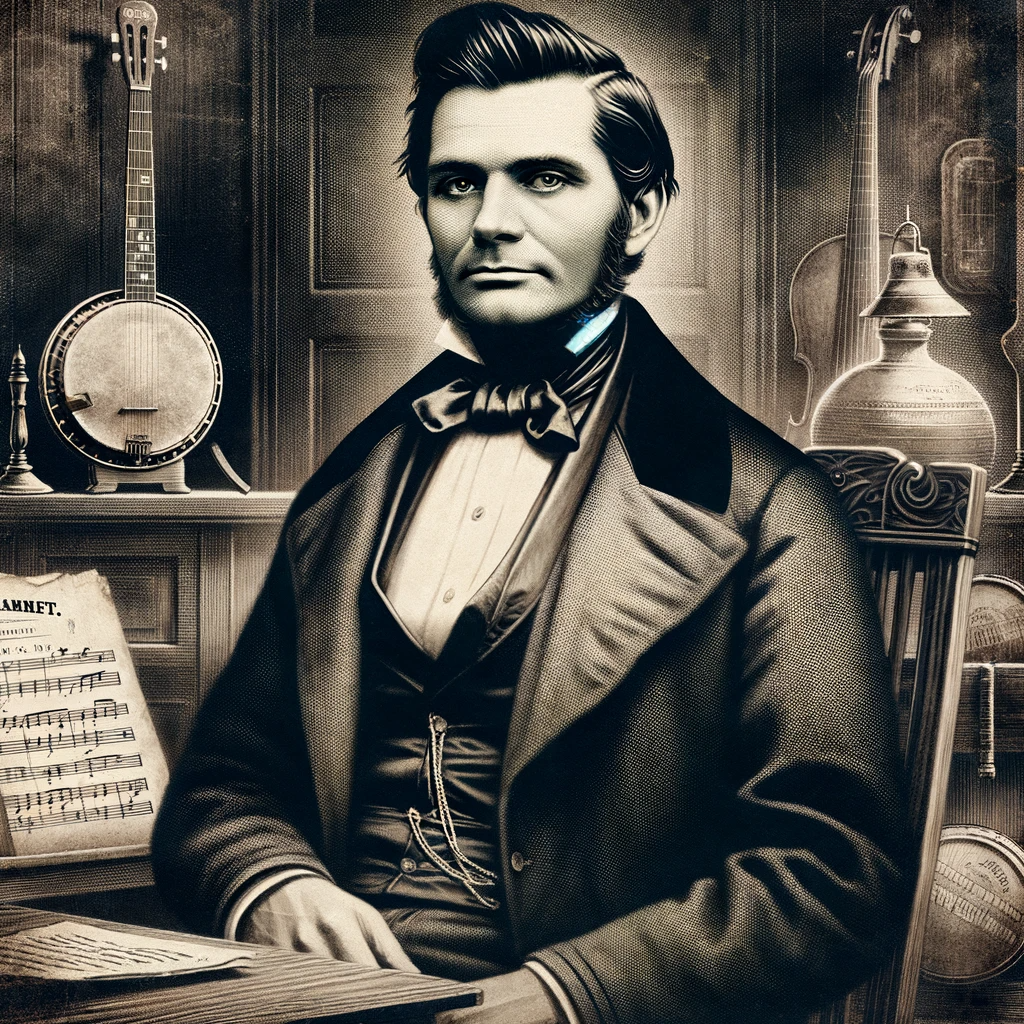In the annals of American music history, few names spark as much intrigue and controversy as Dan Emmett. Often hailed as the “Father of Minstrelsy,” Emmett’s contributions to the genre have been a subject of both admiration and critique. This article aims to explore the multifaceted legacy of Dan Emmett, delving into his life, his music, and the cultural implications of his work in the 19th century.

Early Life and Musical Beginnings
Born in 1815 in Mount Vernon, Ohio, Daniel Decatur Emmett’s early life was steeped in the rural traditions of the American Midwest. His foray into music began with an innate love for rhythm and melody, eventually leading him to learn various instruments. Emmett’s early musical experiences, coupled with his exposure to the diverse cultural milieu of Ohio, laid the foundation for his future contributions to American music.
The Birth of Minstrelsy
Minstrelsy, a form of entertainment that involved white performers in blackface, is where Emmett made his indelible mark. In the 1840s, he formed the Virginia Minstrels, a group that would become a cornerstone in the development of minstrel shows. Emmett’s role in popularizing this genre is undeniable, and his songs, characterized by catchy tunes and often problematic racial caricatures, captured the imagination of the American public.
The Legacy of ‘Dixie’
Perhaps Emmett’s most enduring contribution is the song “Dixie,” which he reportedly composed in 1859. The song, which became an unofficial anthem of the Confederacy during the American Civil War, has since been mired in controversy. This section will explore the origins of “Dixie,” its cultural impact, and the ongoing debates about its place in American history.
Controversies and Cultural Impact
Emmett’s legacy is not without its controversies, particularly regarding the racial stereotypes perpetuated by minstrel shows. This part of the article will examine the cultural impact of minstrelsy, its role in shaping perceptions of African Americans, and Emmett’s personal views on race and entertainment.
Later Life and Legacy
In his later years, Emmett continued to perform but also faced the changing tides of public opinion regarding minstrelsy. His death in 1904 marked the end of an era, but his influence on American music and culture persisted. This section will reflect on how Emmett’s work has been re-evaluated over time and what it tells us about the complexities of American cultural history.
Conclusion
Daniel Decatur Emmett’s life and work offer a window into a pivotal and contentious period in American music history. His contributions to minstrelsy, while controversial, undeniably shaped the trajectory of American entertainment and left a complex legacy that continues to be examined and understood today.